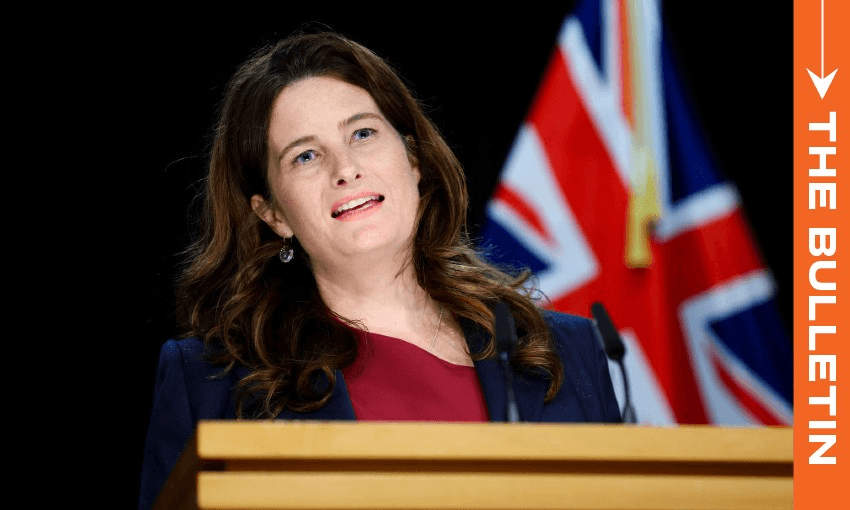Treasury’s latest update showed only small glimmers of light at the end of the tunnel, writes Stewart Sowman-Lund for The Bulletin.
To receive The Bulletin in full each weekday, sign up here.
Hyefu delivers doom and gloom
Christmas came early for political wonks and economists yesterday with the release of the Treasury’s Half-Year Economic and Fiscal Update – or Hyefu. But, while there was plenty to chew over, it was less a festive present and more a lump of coal. As the Herald’s Thomas Coughlan explained (paywalled), while skilfully weaving the phrase “Brat summer” into the first line of his story, there’s almost no good news from Treasury’s latest forecasts. Unemployment is tracking up, GDP growth will be pretty much flat in the year to June 2025, and the government’s tax take is $13 billion lower over the forecast period.
Bernard Hickey and economist Craig Renney had a good wrap of the top lines for The Kākā, arguing that the government’s “austerity” approach (Hickey’s word, certainly not the government’s) had caused the economy to dive deeper into recession.
The blame game
There is a general consensus across the parliament that things are pretty grim, even if the government has tried its best to argue there’s light at the end of the (very long) tunnel. But as is typical in politics, nobody is claiming responsibility. In what feels like it could be perfectly represented by that “spider man pointing meme”, the government and the opposition are blaming one another for how we’ve ended up in this situation. We’ve been here before. A quick Google search shows Willis blaming Labour for the state of the books after last year’s Hyefu and this year’s budget, but you have to wonder how long that excuse remains a helpful one (Mike Hosking’s “rule of thumb” is that you get one term to blame the last government, which seems fairly generous). Willis also believed that Treasury’s previous outlooks were overly optimistic.
Speaking to Andrew Dickens on Newstalk ZB this morning, Labour’s finance spokesperson Barbara Edmonds said the blame fell squarely at the feet of Nicola Willis and the coalition. “Nicola Willis is borrowing more, has more debt, a larger deficit… we’re not sure why she’s borrowing more except for tax cuts [and] she chose to bringing back interest deductibility for landlords. For me, it’s her reputation that is in tatters.”
Obegal…X?
As if the various budget acronyms weren’t confusing enough, the finance minister Nicola Willis unveiled a new one yesterday: ObegalX. As RNZ’s Jo Moir explained, it refers to the standard Obegal – or operating balance before gains and losses – but without the ACC deficit. Under this measure, New Zealand will be able to return to surplus in the 2027/28 financial year – a one-year delay in returning to surplus. It’s a convenient financial solution given that with ACC included, as it normally would, the books are forecast to stay in the red until the end of the decade. All up, it will be nine years of deficit, which Moir said would make it three years longer than after the Global Financial Crisis and Canterbury earthquakes.
1News’ Katie Bradford noted that Treasury disagreed with the removal of ACC from the measures, but the finance minister “forged ahead”. Nicola Willis defended the forecasts being pushed out: “the hill we have to climb is steeper than it was a year ago”.
Will we thrive, or barely survive, in 2025?
All the bad news makes it seem as though the “survive to ‘25” mantra should really be reframed as “survive through ‘25”. As The Post’s Anna Whyte reported, government departments won’t be receiving any additional funding in May’s budget and further cuts are expected. A charities tax, as has previously been hinted at, will also feature in the next budget, while Politik’s Richard Harman noted (paywalled) that Willis remained interested in a foreign buyer tax akin to what was campaigned on in 2023.
But there’s a large gap to fill. Thomas Coughlan (paywalled) puts the state of the books in context: “Labour could, on coming into office, legislate its 2023 wealth tax and still not close the structural deficit… Likewise, the coalition could cancel their tax cuts, worth about $3.7b a year, and still be only halfway to closing the structural deficit.” His colleague Claire Trevett, in an excellent in-depth report this morning that goes behind the scenes of the coalition government, noted that ministers will already be making budget bids but that there is limited chance for success. Reprioritisation will, once again, be the name of the game. The government has undoubtedly weathered some storms already, but there’s a long way to go.
